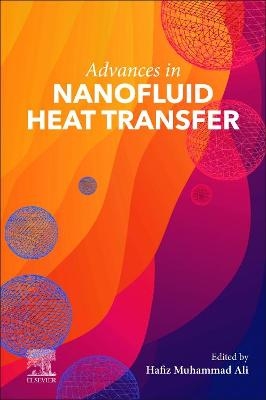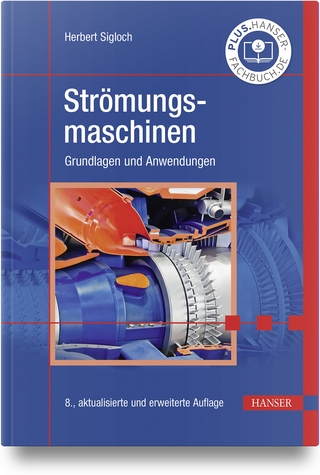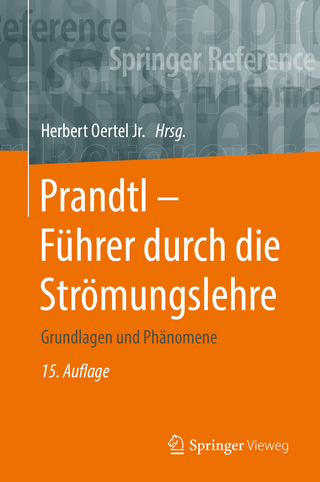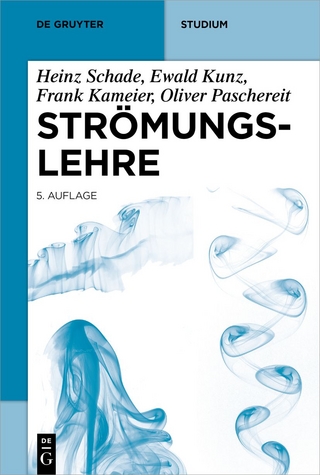
Advances in Nanofluid Heat Transfer
Elsevier - Health Sciences Division (Verlag)
978-0-323-88656-7 (ISBN)
This book provides detailed coverage of stability and reliable measurement techniques for nanofluid properties, as well as different kinds of base fluids. Providing a clear understanding of what happens at the nanoscale, the book is written to be used by engineers in industry as well as researchers and graduate students.
Hafiz Muhammad Ali is currently working as an associate professor of Mechanical Engineering at King Fahd University of Petroleum and Minerals, Saudi Arabia. He received his doctoral degree in mechanical engineering from School of Engineering and Materials Science, Queen Mary, University of London, United Kingdom, in 2011. He was a postdoc at Water and Energy Laboratory of University of California at Merced, United States, during 2015-16. Dr. Ali is a noted faculty member having thermal sciences, heat transfer, and solar energy as his major areas of interest. His research interests include electronics cooling, condensation, nanofluids, heat transfer devices, and thermal management. He is the recipient of the “Best Young Research Scholar Award for 2017 in the Engineering category, conferred by Higher Education Commission of Pakistan at the 7th HEC Outstanding Research Award Ceremony. He also had the honor of receiving HEC’s Best Research Paper Award (2013/2014) and Research Productivity Award by Pakistan Council of Science and Technology (2016-17). Apart from his academic duties, he is actively involved with editorial duties in several international journals, notably Journal of Thermal Analysis and Calorimetry (Springer), International Journal of Thermofluids (Elsevier), Journal Thermal Science, and Journal of Mechanical Engineering.
1.Experimental correlations for Nusselt number and friction factor of nanofluids 2. Stability of nanofluids in heat transfer 3. Synthesis, characterization, and measurement techniques for the thermophysical properties of nanofluids 4. Thermophysical and rheological properties of unitary and hybrid nanofluids 5. Comparison of physical properties enhancement in various heat transfer nanofluid by MXene 6. Numerical modeling of nanofluids’ flow and heat transfer 7. Recent advances in machine learning research for nanofluid heat transfer in renewable energy 8. Heat transfer enhancement with nanofluids in automotive 9. Harvesting solar energy by nanofluids and antibacterial activity via nanofluids 10. Application of nanofluids in combustion engines with focusing on improving heat transfer process 11. Applications of nanofluids in solar energy collectors focusing on solar stills, advances in nanofluid heat transfer 12. Utilization of nanofluids (mono and hybrid) in parabolic trough solar collector: a comparative analysis 13. Electronics thermal management applying heat pipes and pulsating heat pipes 14. Role of nanofluids in microchannel heat sinks 15. Nanofluids for enhanced performance of building thermal energy systems 16. Ionic nanofluids: preparation, characteristics, heat transfer mechanism, and thermal applications 17. Hybrid nanofluids towards advancement in nanofluids for heat sink
| Erscheinungsdatum | 03.05.2022 |
|---|---|
| Zusatzinfo | 75 illustrations (45 in full color); Illustrations |
| Verlagsort | Philadelphia |
| Sprache | englisch |
| Maße | 152 x 229 mm |
| Gewicht | 930 g |
| Themenwelt | Naturwissenschaften ► Physik / Astronomie ► Strömungsmechanik |
| ISBN-10 | 0-323-88656-6 / 0323886566 |
| ISBN-13 | 978-0-323-88656-7 / 9780323886567 |
| Zustand | Neuware |
| Haben Sie eine Frage zum Produkt? |
aus dem Bereich


